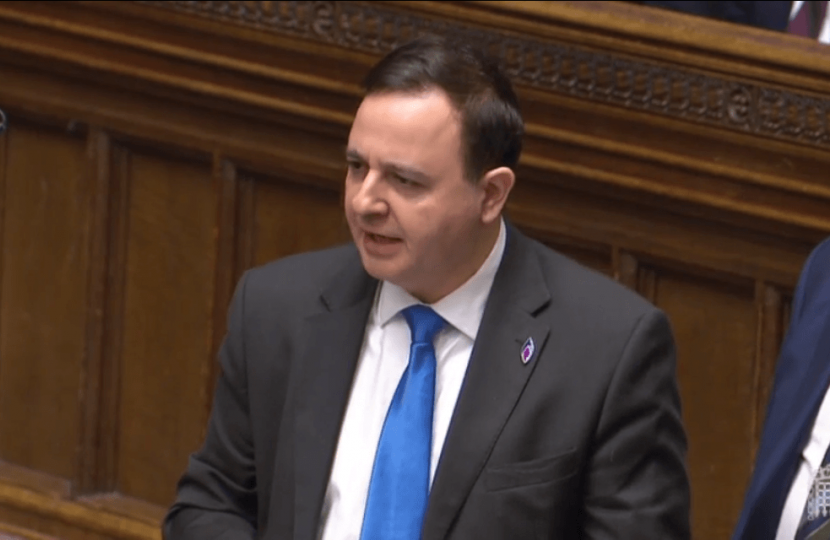
Last week, I was very pleased to raise the case of my constituent, Rachael Knappier, with the Prime Minister in the House of Commons. I am sure many Mercury readers will remember Rachael’s case very well; last year she suffered a terrible injury following a botched lip filler treatment, and since then she has been campaigning brilliantly for better regulation for non-surgical cosmetic treatments.
While many of us may have wished for a quiet life after such a traumatic incident, Rachael has shown tremendous bravery and willingness in wanting to talk about her experience. She has provided a multitude of young women and others with a message of understanding and empowerment, and has helped encourage others with similar stories to come forward and press the industry and Government into action.
After hearing Rachael’s story, I was astounded to learn that there are almost no regulations or safeguards in place for those who receive these kind of treatments. Comparatively, cosmetic surgical treatments are very tightly controlled and similarly you have to be at least 18 years of age to receive a tattoo; none of these sadly apply to non-surgical treatments. Those administering these treatments are not required to have any formal qualifications or medical training, and yet each year thousands of these procedures are being carried out with little or no protection for consumers and no available recourse for those affected.
According to Save Face, the Government’s approved register of accredited practitioners, there has been an alarming rise in reports of botched non-surgical cosmetic procedures, and with these treatments now readily available on the high street, it is time for the Government to act before this situation spirals out of control.
While those with similar cases to Rachael have been at a loss in seeking help for botched treatments, there are also a multitude of other equally worrying trends associated with these procedures. NHS England have expressed strong concerns over the potential mental health impacts of these treatments; especially the effects these may have on the younger generations for whom these procedures are more targeted at.
There is something of a need to aspire to particular ideals of appearance, and these largely underpin the cosmetics industry, and while it is of course a person’s own prerogative to undertake any procedure they wish, they should be able to do so through the prism of an informed decision and peace of mind; that the treatment they are receiving has been tried, tested and regulated by a professional body.
As MPs we have a duty to protect our constituents and I will endeavour to continue pressing this matter in order to bridge this gap in legislation and provide safety and reassurance to all concerned.
This article was originally published in the Leicester Mercury on Friday 1st February, as part of the 'In the House' series.
